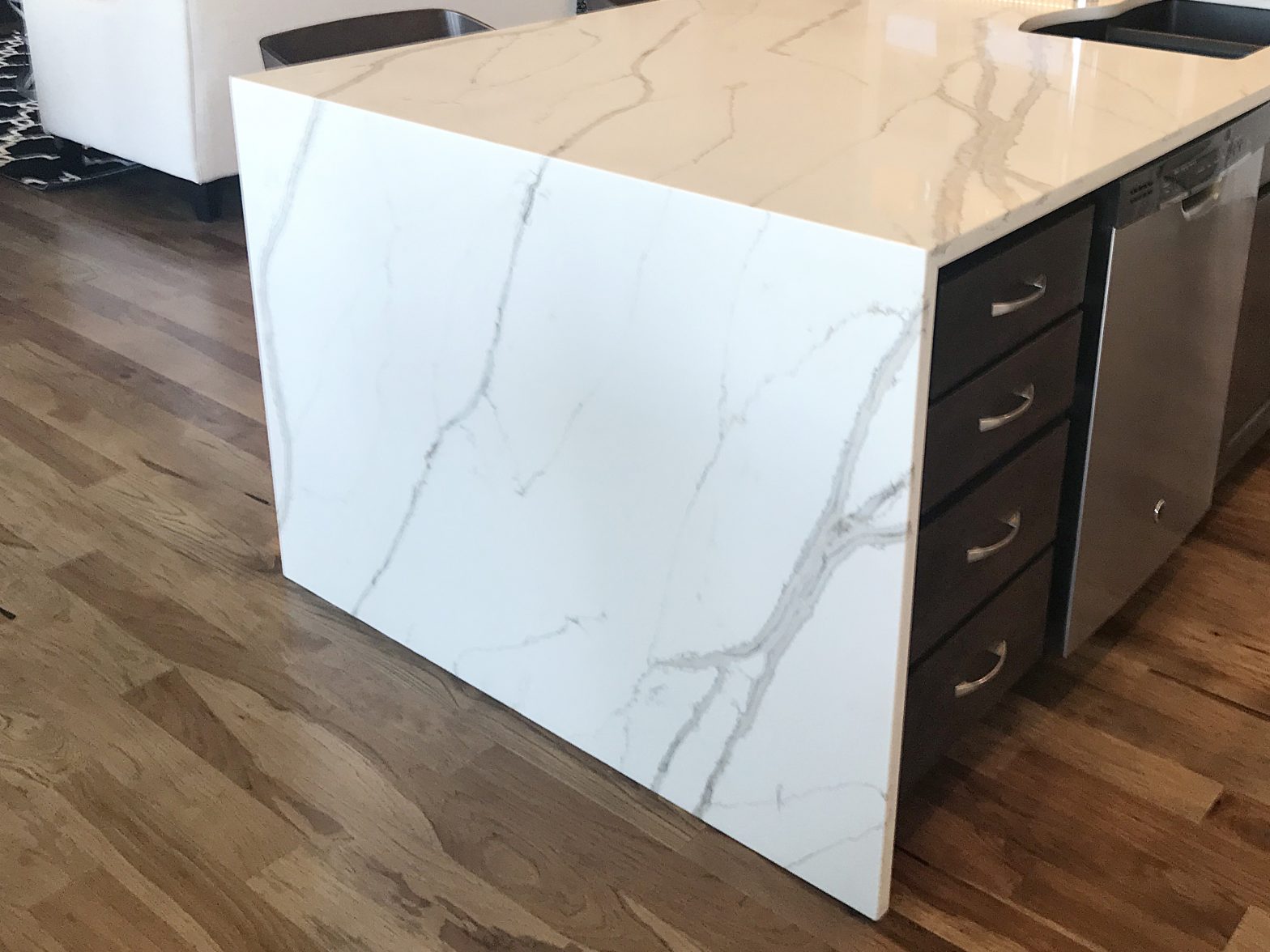
When choosing granite countertops for your home, there are several factors to consider. You have multiple choices to make from colors to edges when selecting granite countertops. Another factor to consider is the thickness of your countertops.
The thickness of your granite countertops will determine the cost and the overall look of your countertop design.
The most used thickness until recently for countertops is 2cm. As trends have evolved, homeowners have chosen to have thicker granite countertops, like 3cm, installed. Keep in mind that an inch is 2.54 centimeters. It may be easier for most people to visualize it in imperial measurements.
By today’s standards, 2cm is the average granite thickness for countertops since historically this is what people had installed. Converted to inches, this is just over 3/4 of an inch in thickness. This was once considered the industry standard, but thicker options are rising in popularity. 2cm thick countertops often require reinforcement to prevent breaking or sagging, but still a solid option though it is on its way out in popularity.
3cm thick countertops are now considered the industry standard for kitchen, bathroom, and bar countertop solutions. This sturdier and more luxurious option is just under 1.25 inches. The thicker granite slabs offer an added appeal to the space, and they also require less work since they do not need to be reinforced like 2cm countertops.
Even though this costs a bit more in materials, you will get more bang for your buck with the added thickness. It is easier to eliminate seams and add a larger overhang when your countertops are thicker, so the extra cost comes with versatility as well as durability.
Each option has its benefits for your home. When you are comparing the two options, you need to consider:
For example, if you add new countertops to your bathroom, 2cm granite countertops look great when incorporated into bathroom vanity designs. 2cm countertops also tend to have a lower price tag since they are more readily available from manufacturers.
3cm thick countertops offer more durability and look great with kitchen designs. Since more material is used in these countertops and they are not as available, they have a higher cost.
Many homeowners that have natural stone countertops are choosing to incorporate a waterfall edge to their kitchen countertops that not only cover the top of the cabinets but the sides of them as well. This is better with thicker countertops so while it is possible for 2cm thick countertops, a 3cm thickness is recommended.
Another thing to keep in mind regarding what thickness you should choose for countertop thickness is whether you are replacing all the countertops in your kitchen, or just adding an island. Consistency is encouraged through the kitchen so if your existing countertops are 3cm thick, then the island countertop should be fabricated and installed to be 3cm thick as well.
For some prefabricated countertops, you can go thinner than 2cm, typically down to 1cm. You want to keep in mind that you will get what you pay for when it comes to these granite installation options.
Typically prefabricated countertops are cheaper, but they are also more prone to damage. When you install thinner countertops, they will require more reinforcement so they do not break. If you are interested in thinner countertops, there are other materials you should consider.
Granite Countertops for Pittsburgh Homeowners
Whether you want thicker or thinner countertops, the experts at Express Cabinet & Granite can help you find the perfect granite countertops for your space! Contact us today to learn more about our granite countertop installation services.